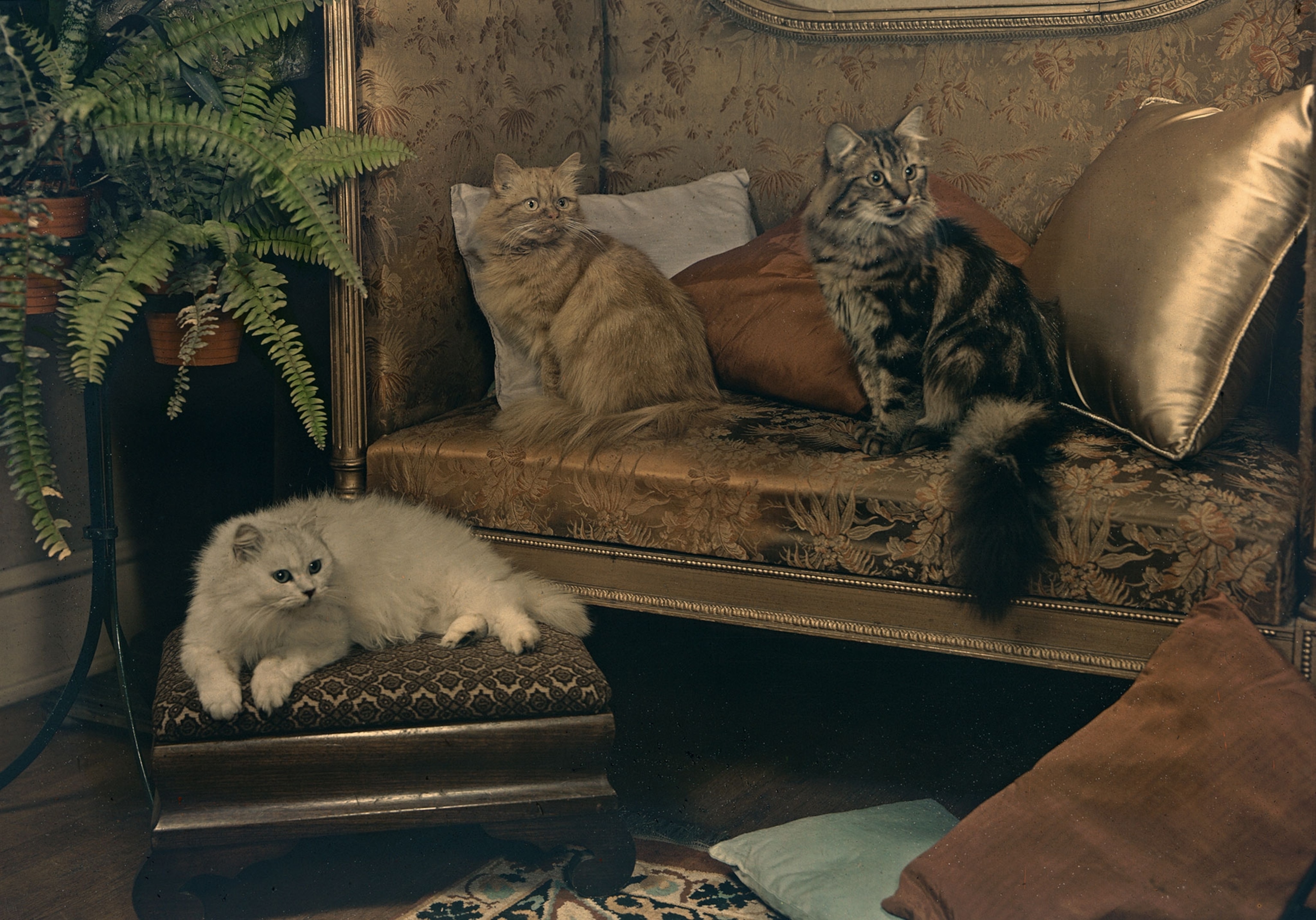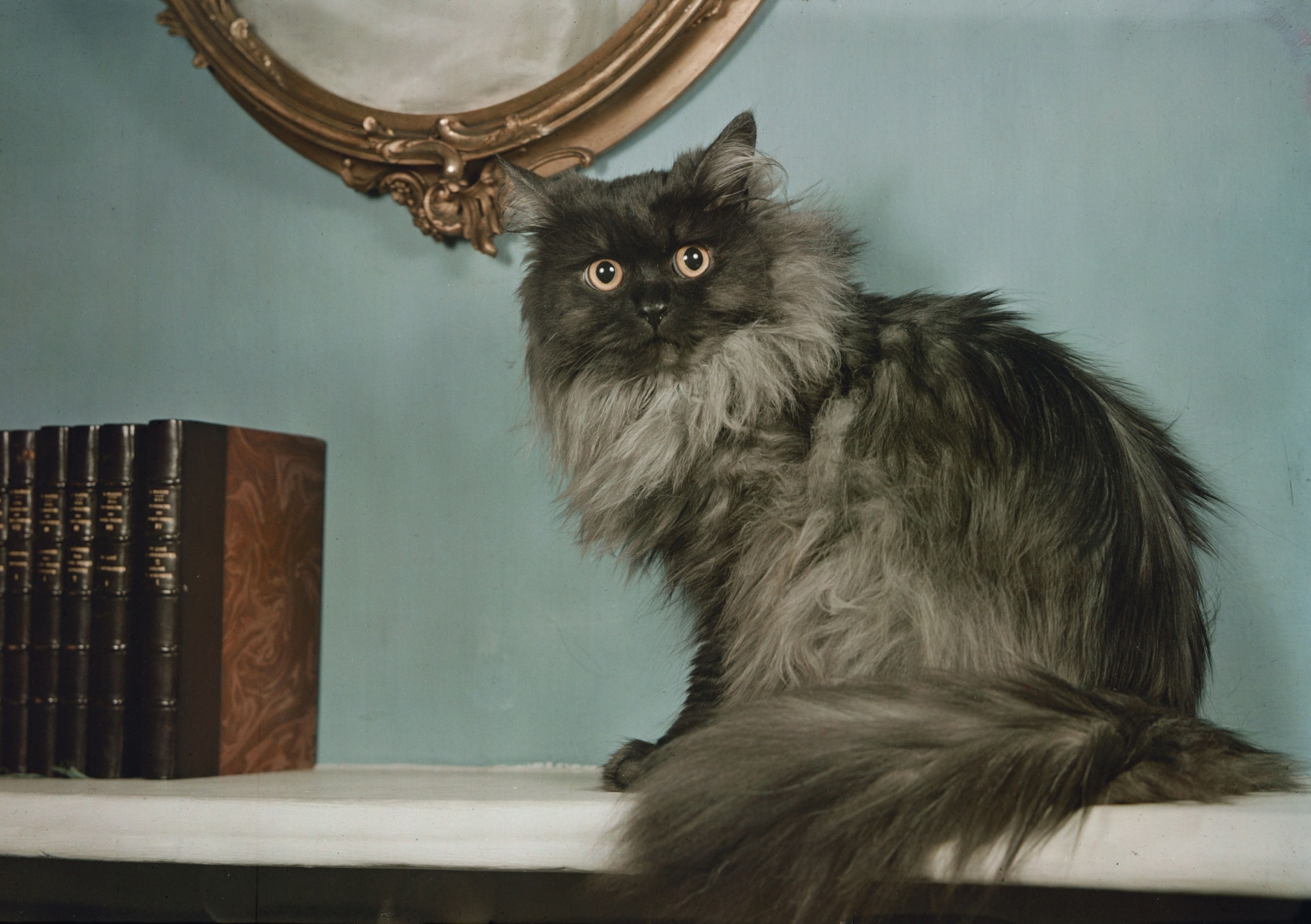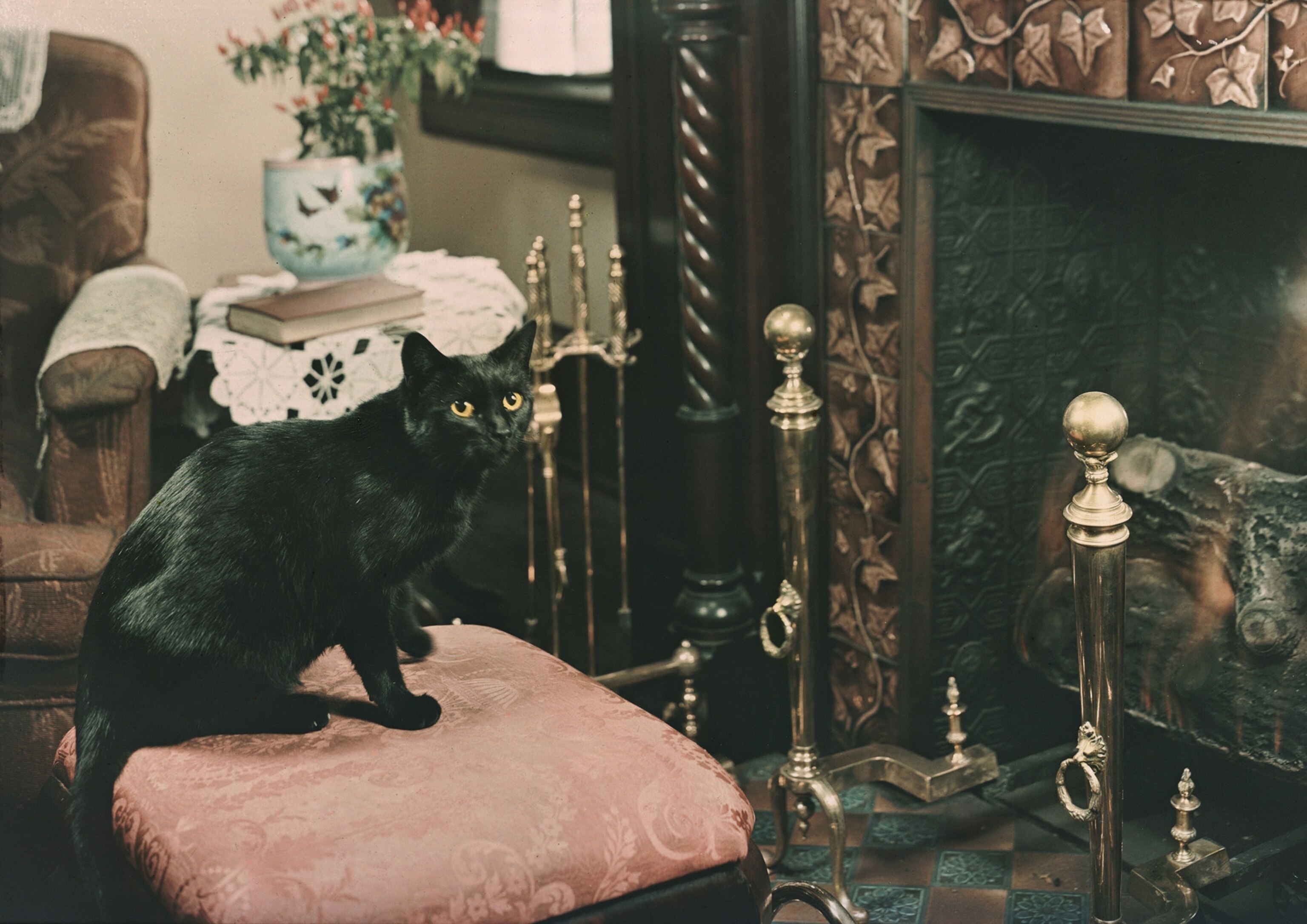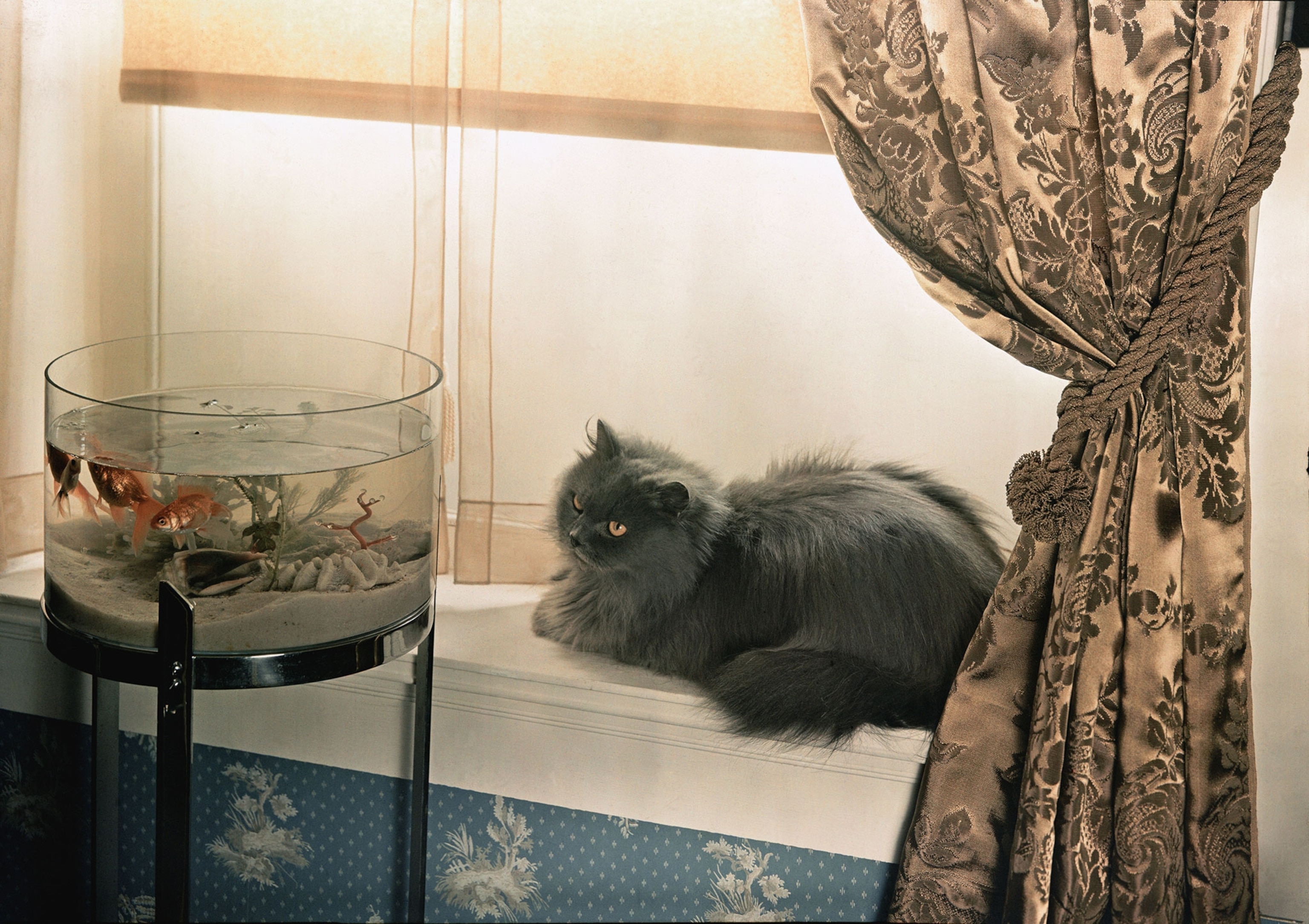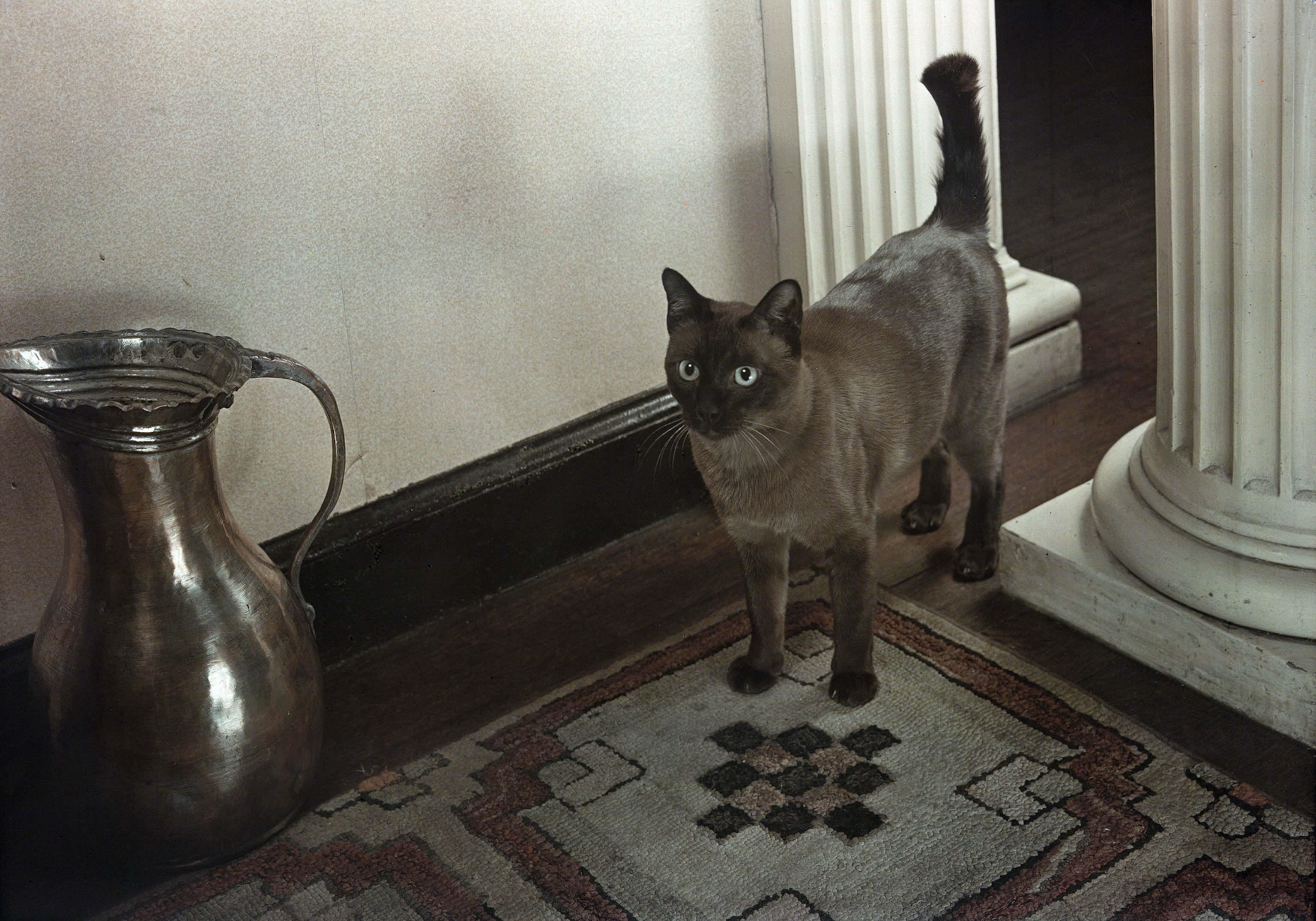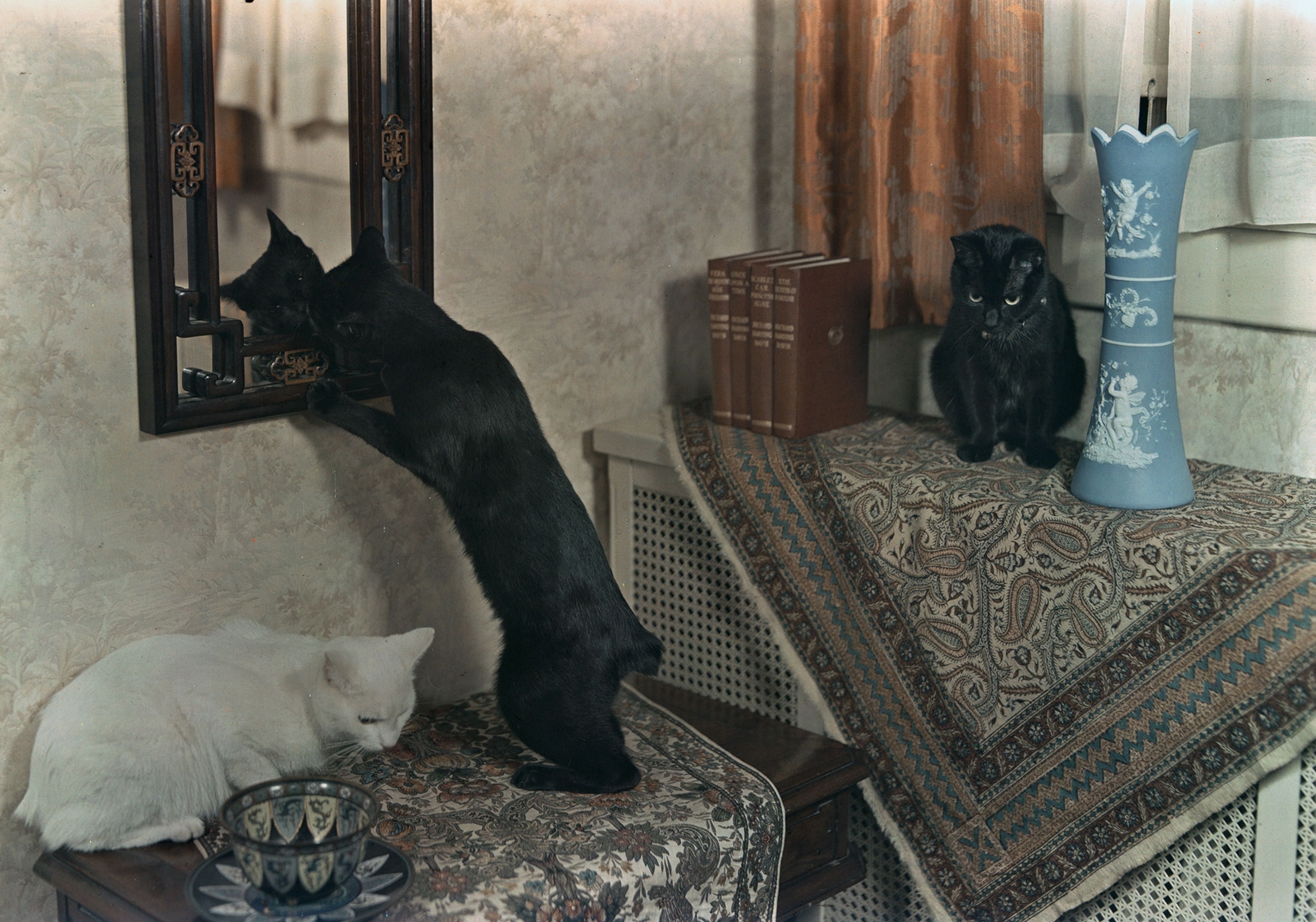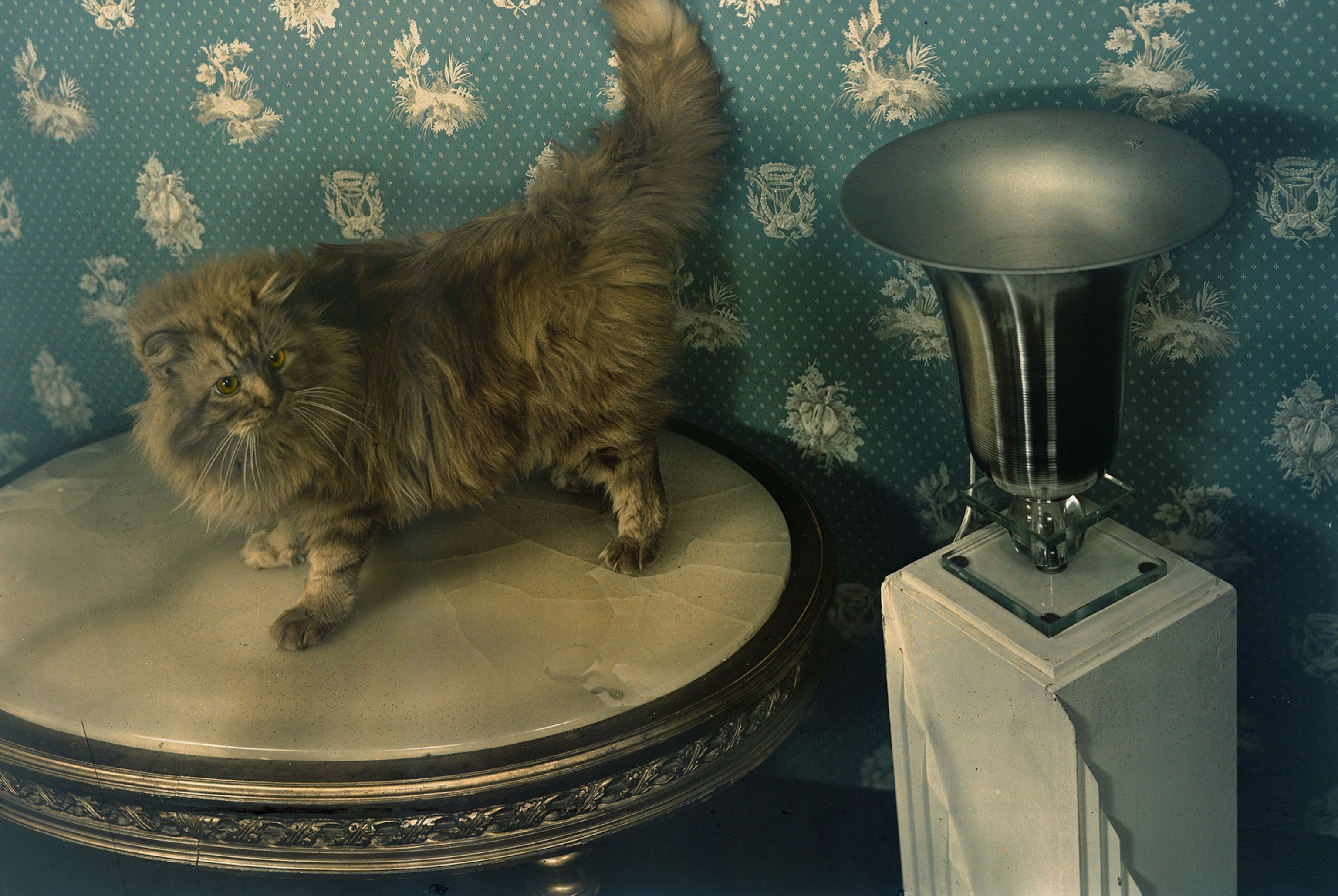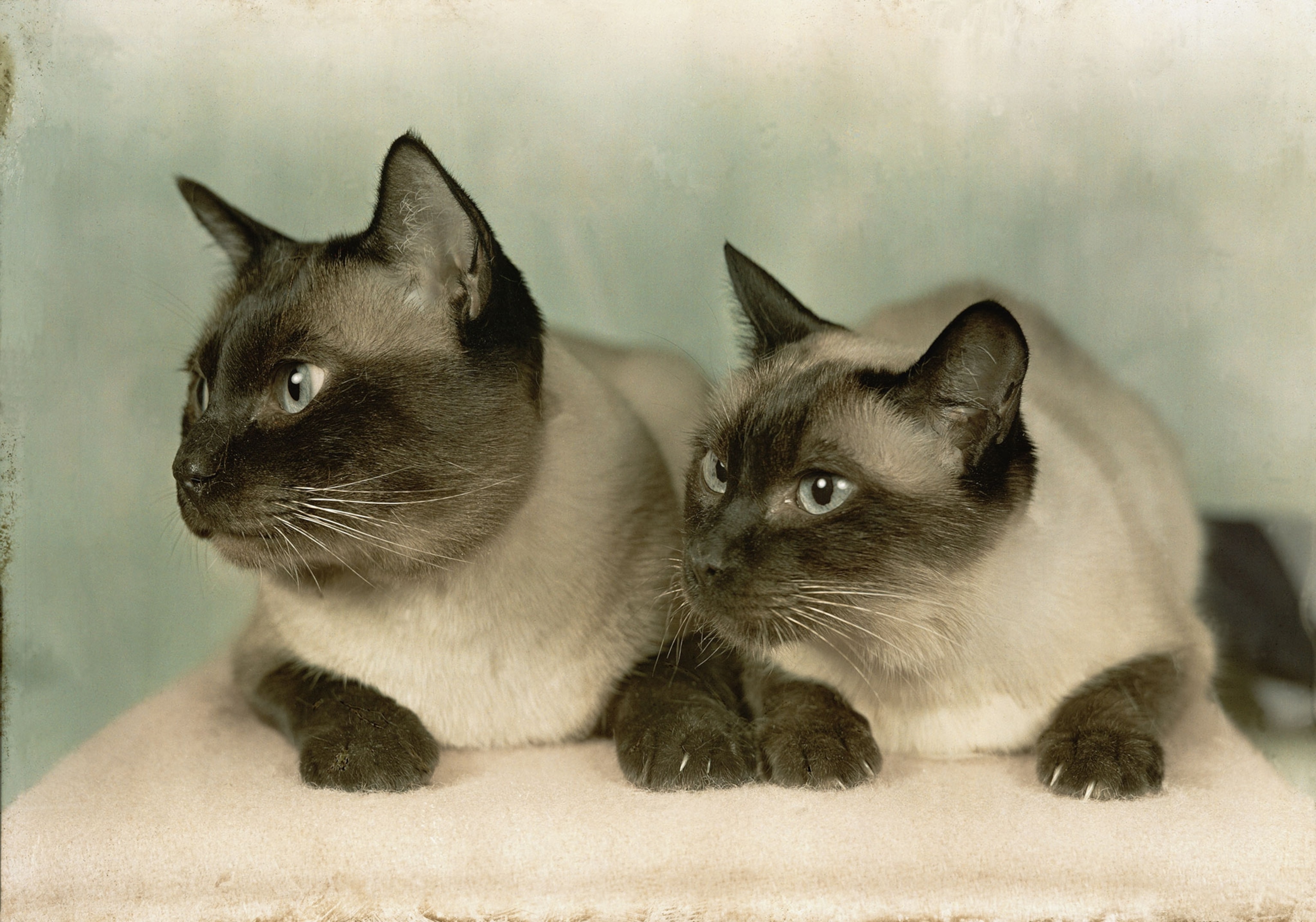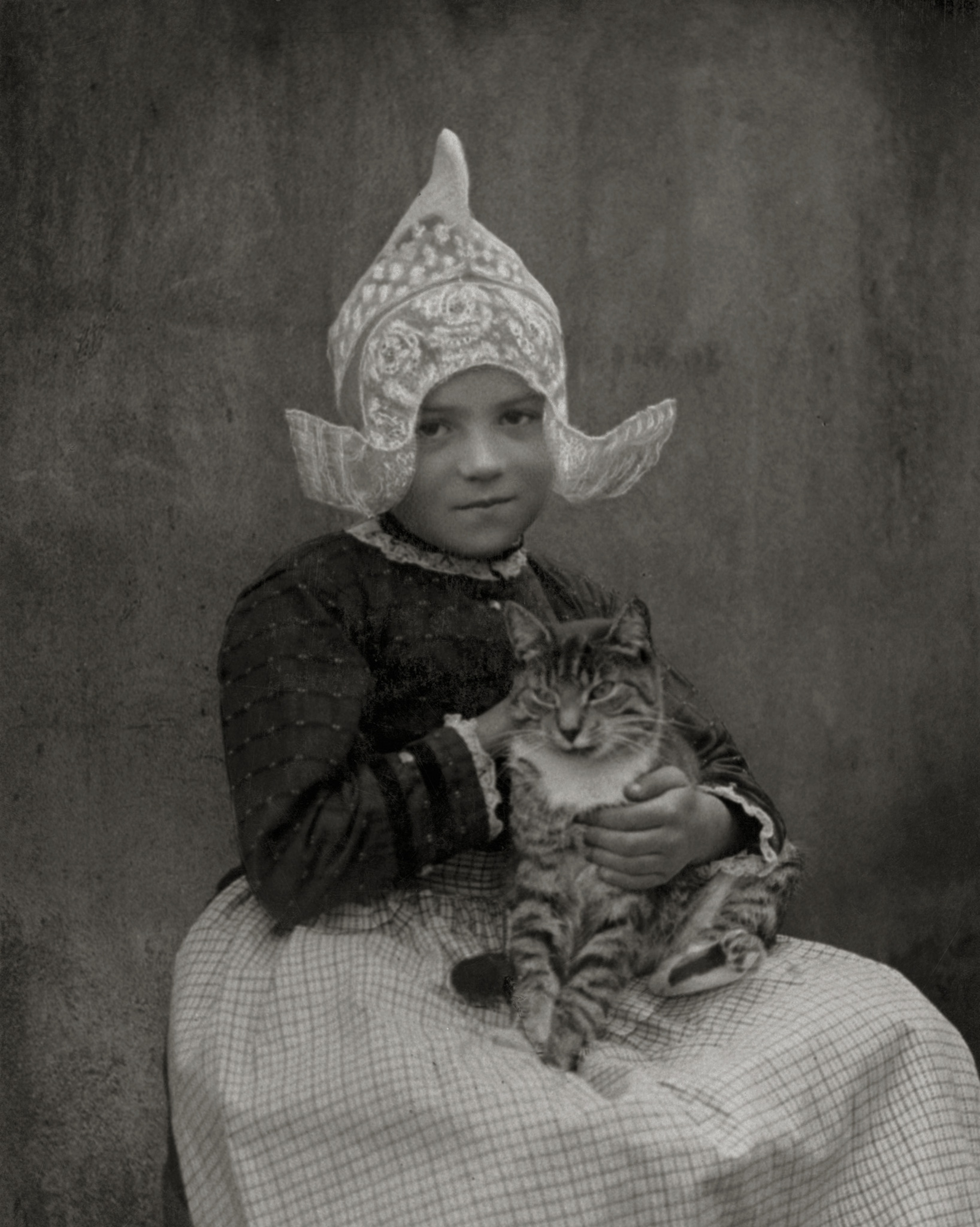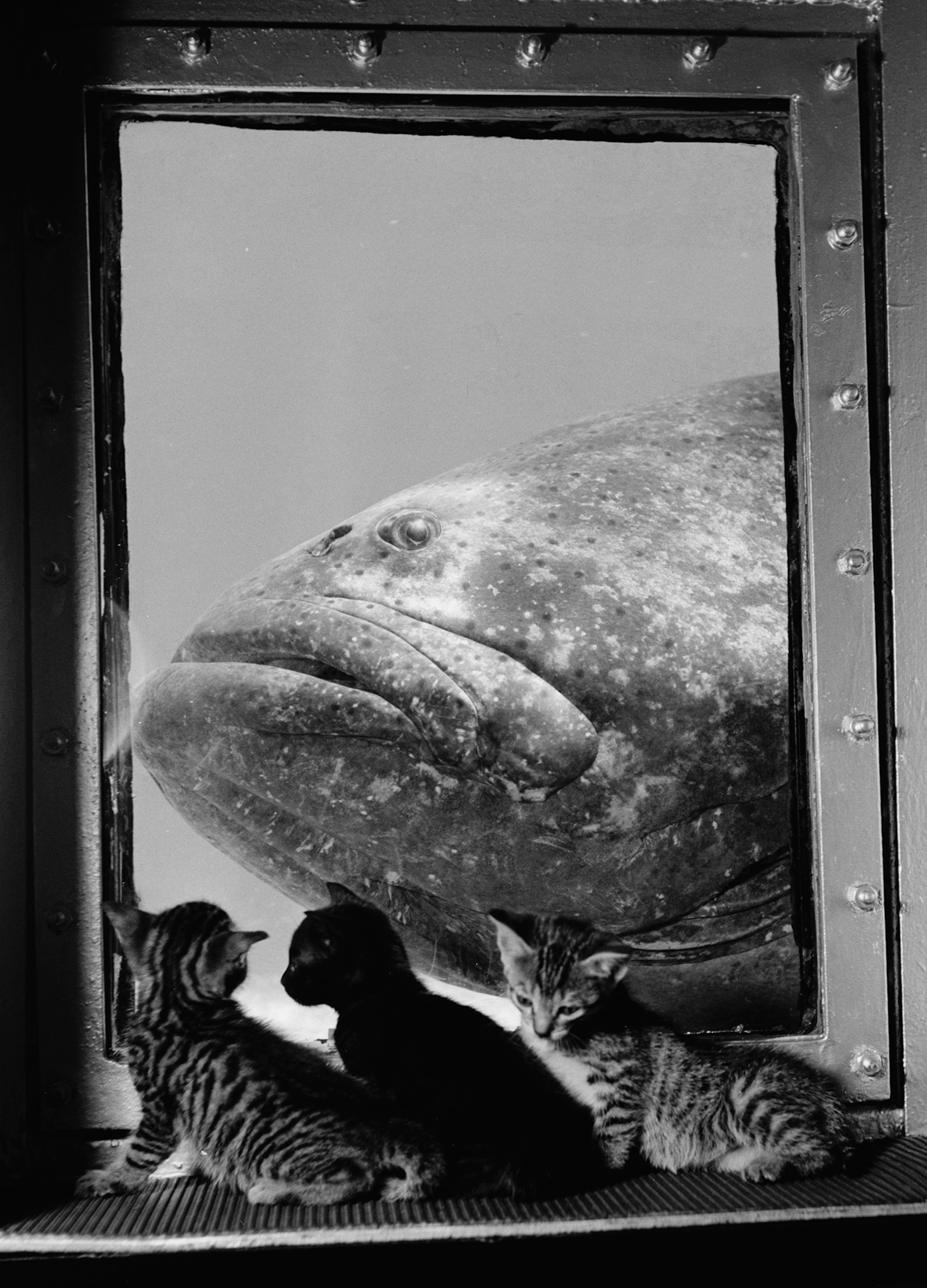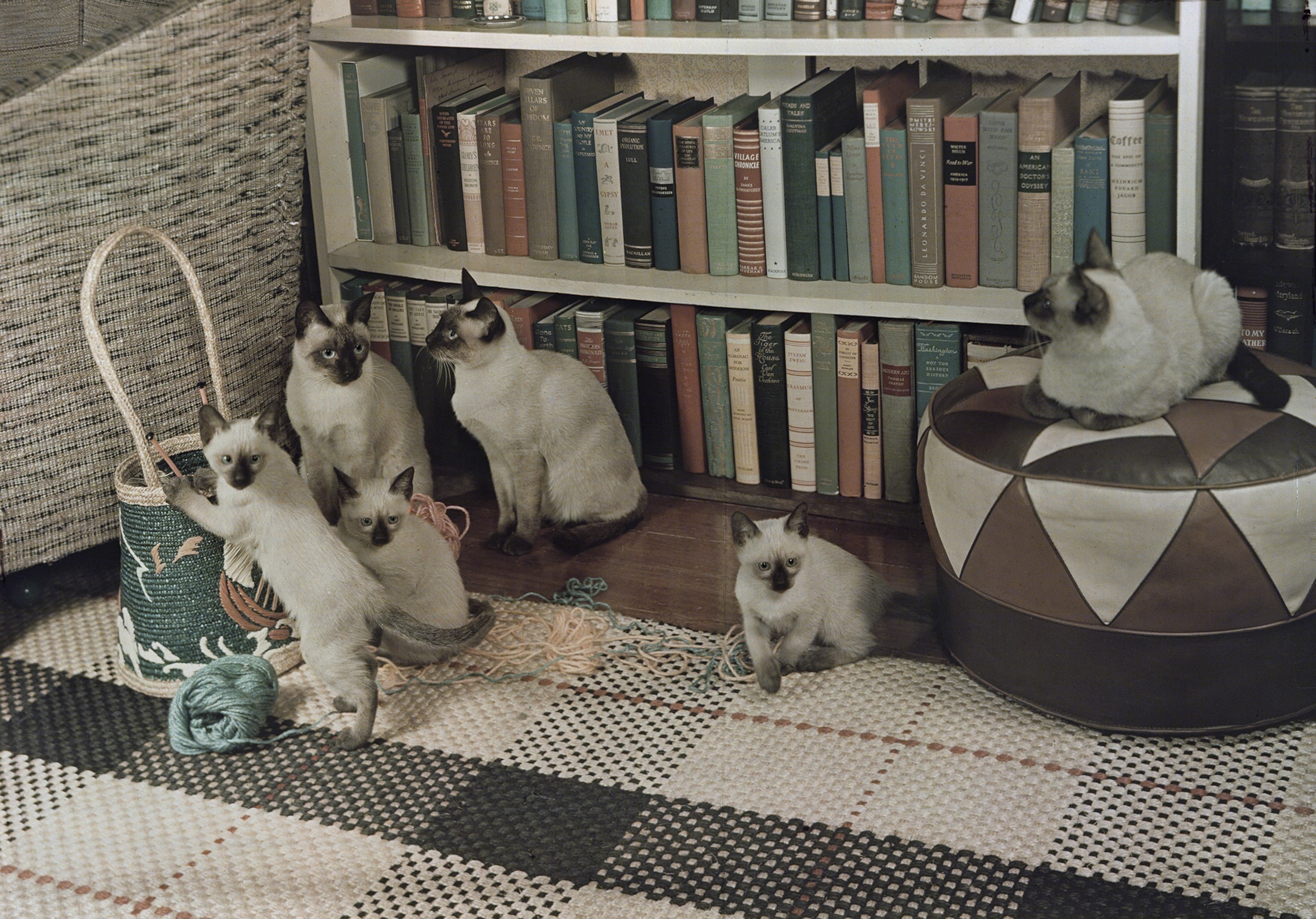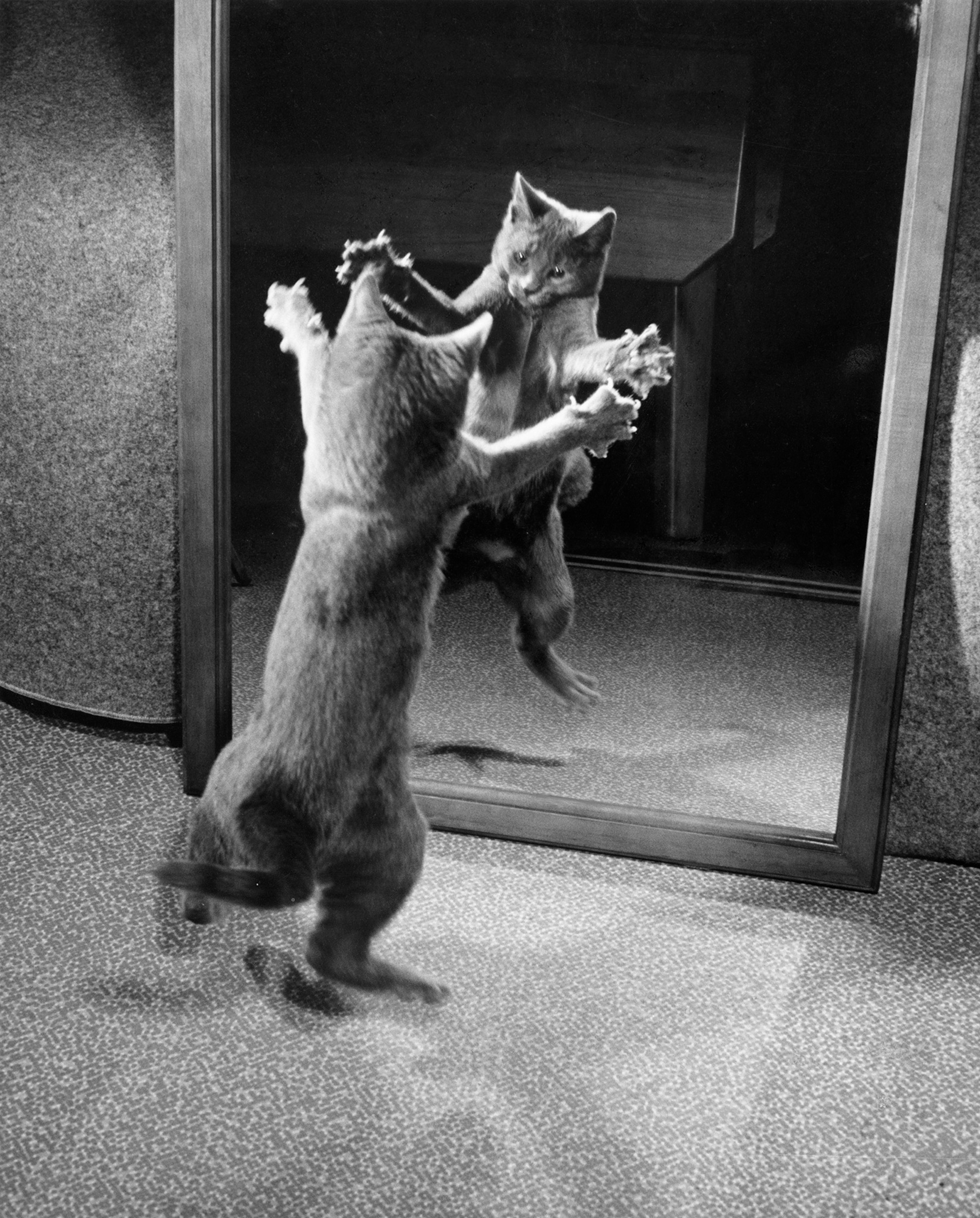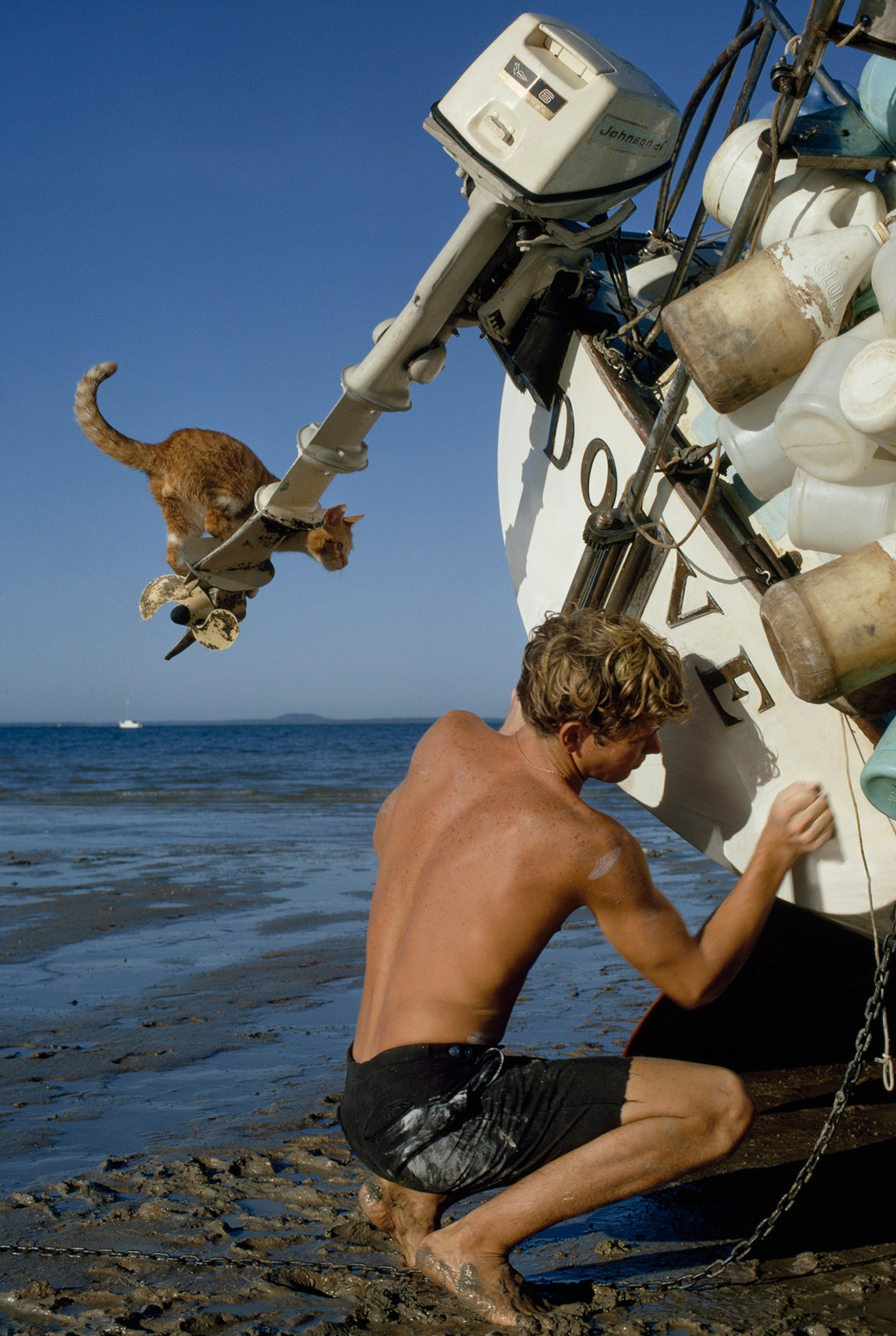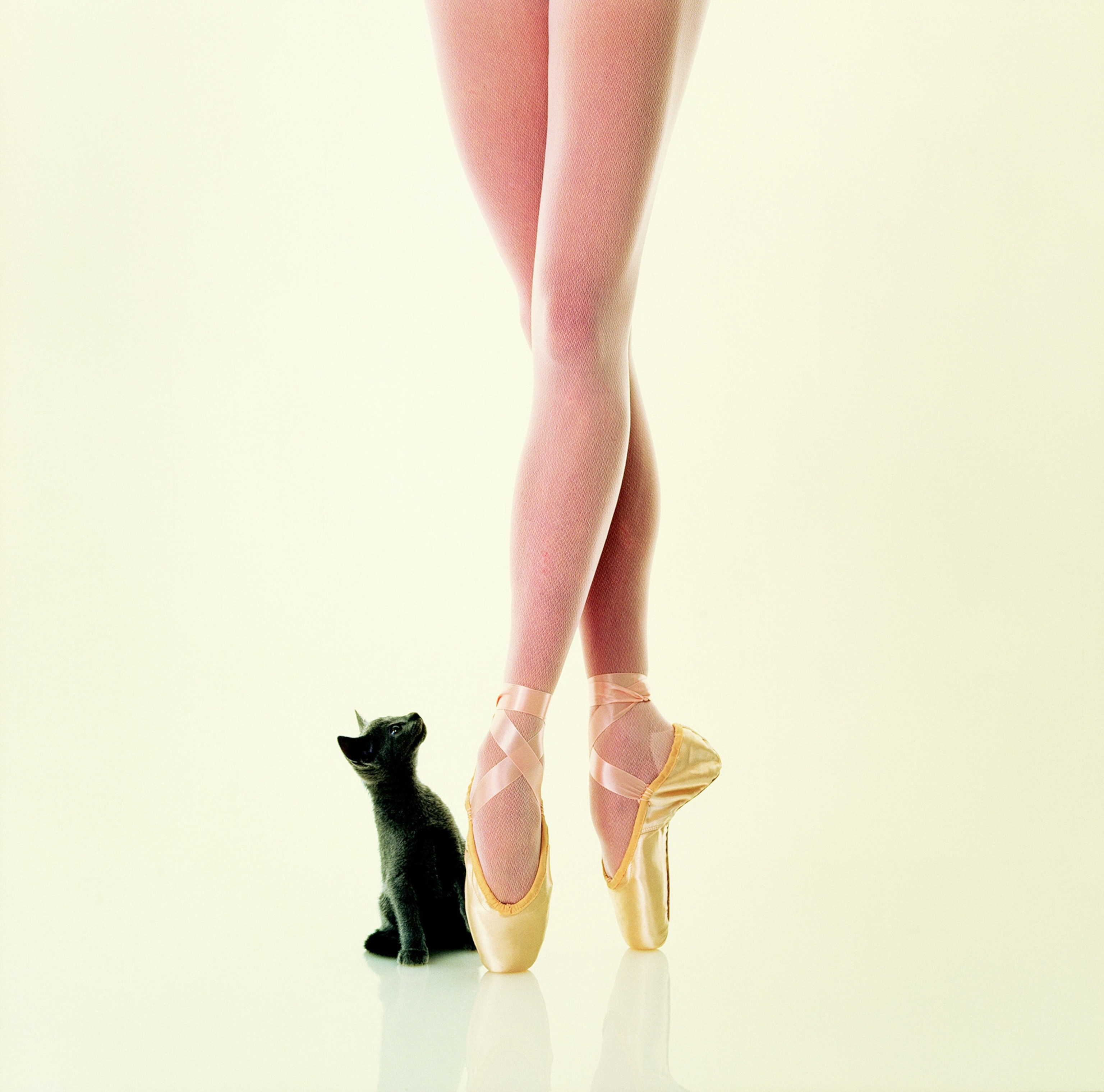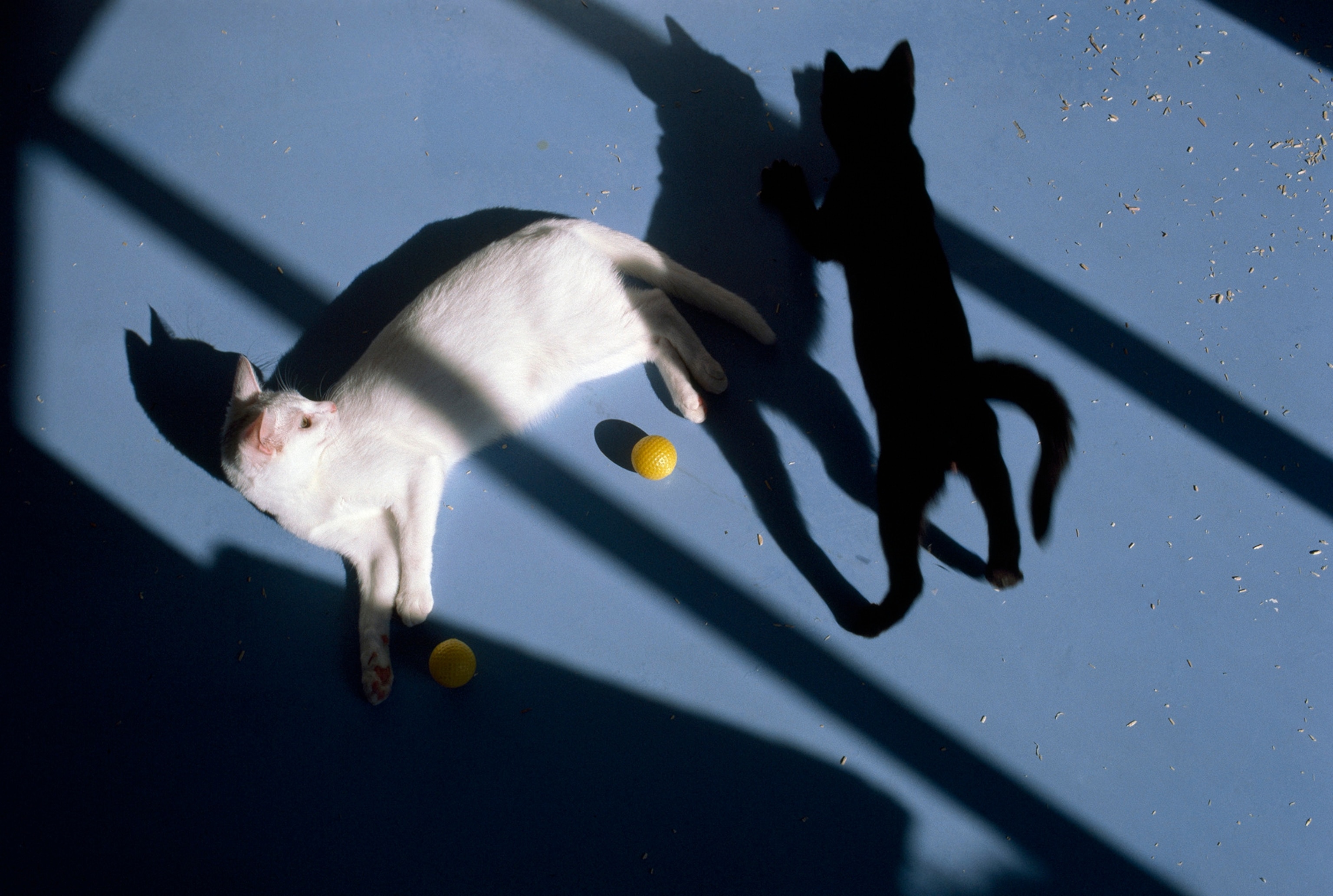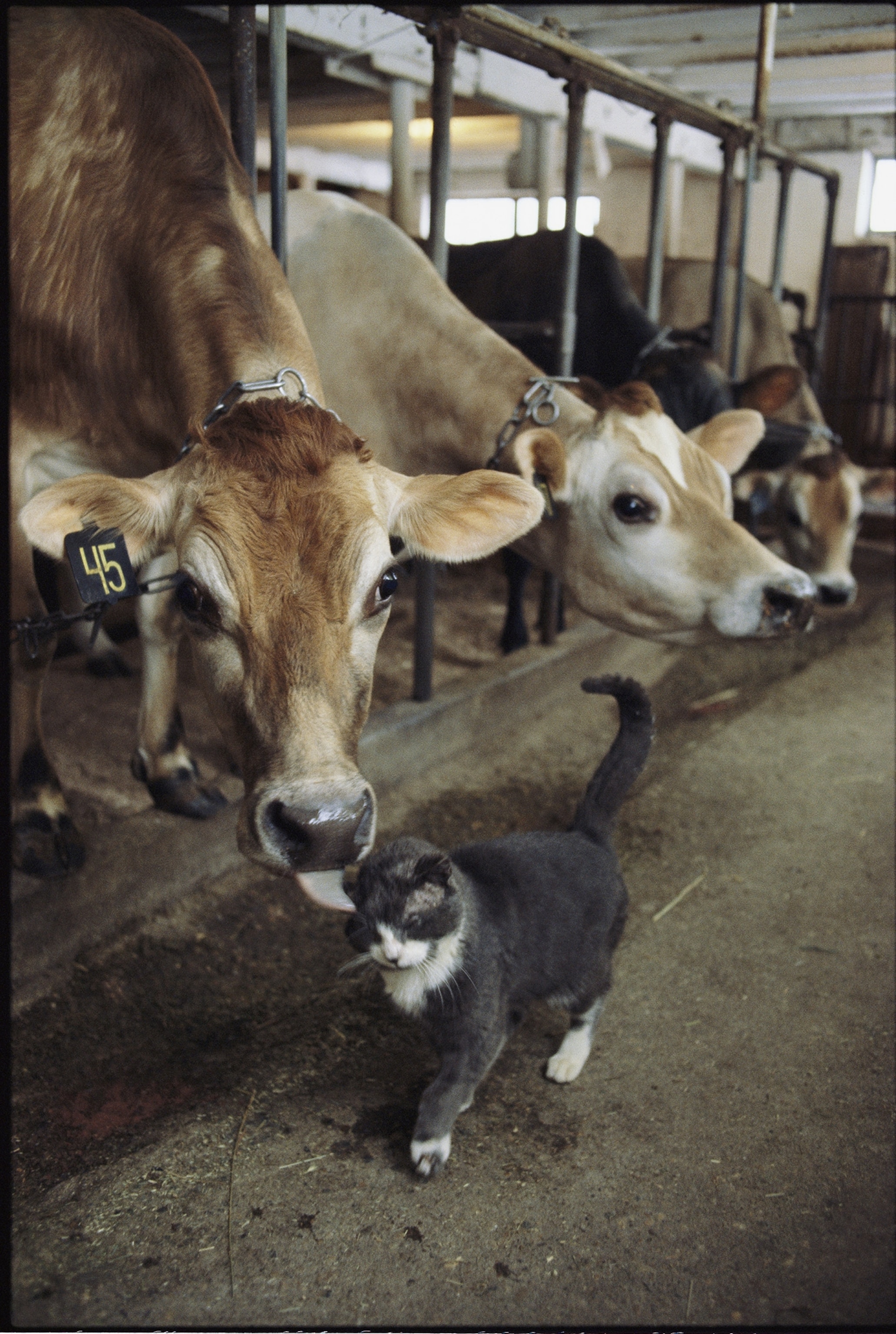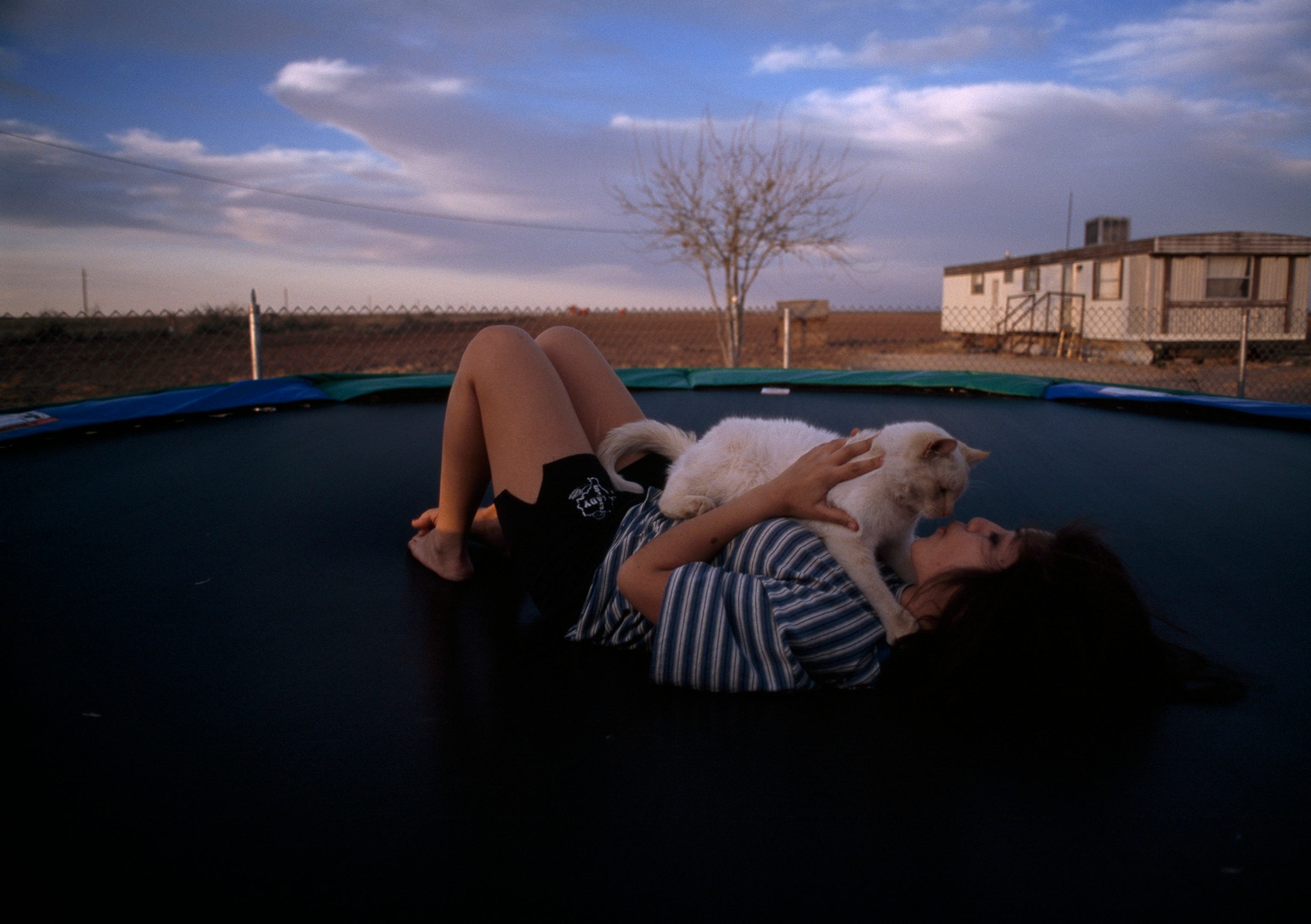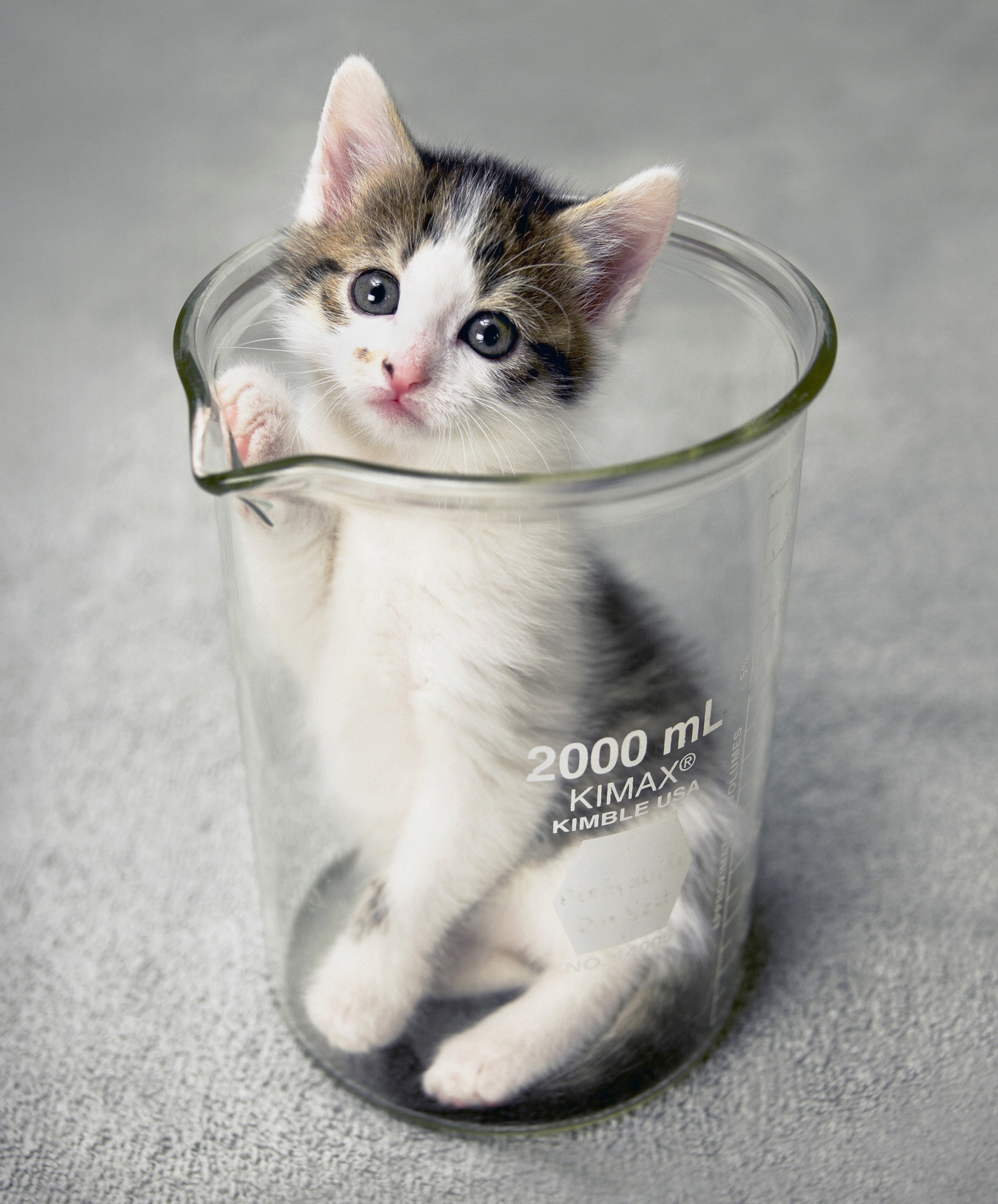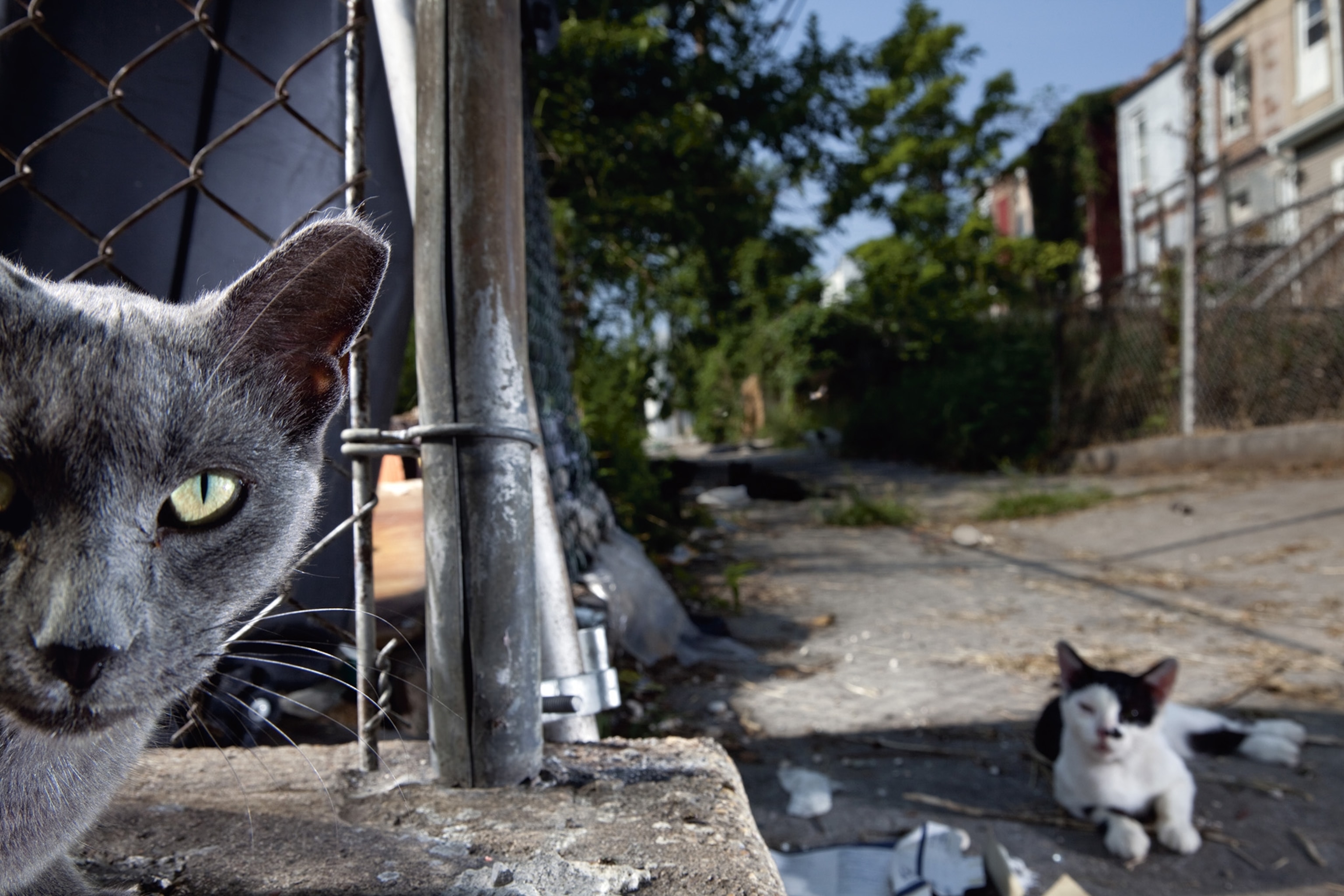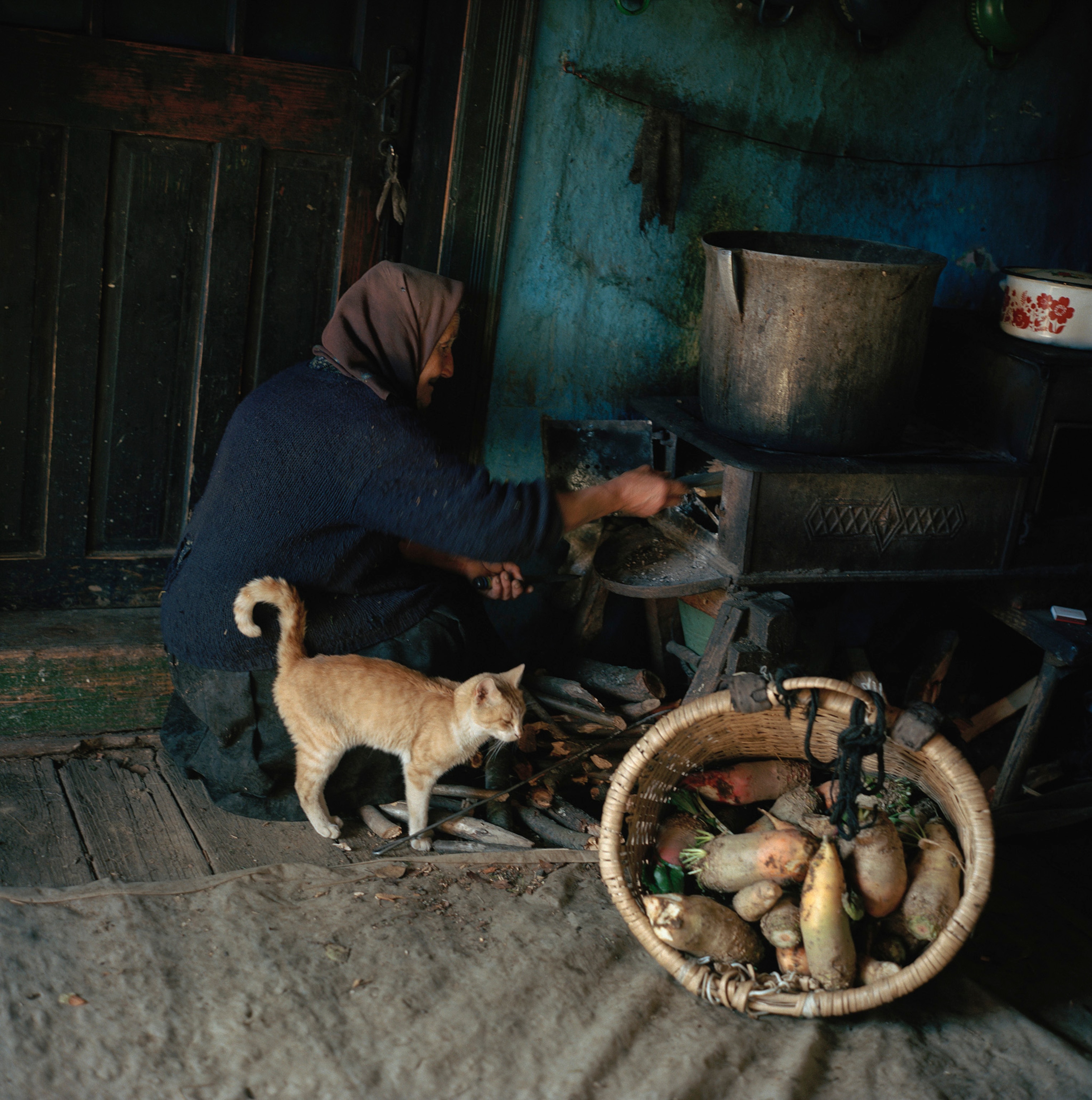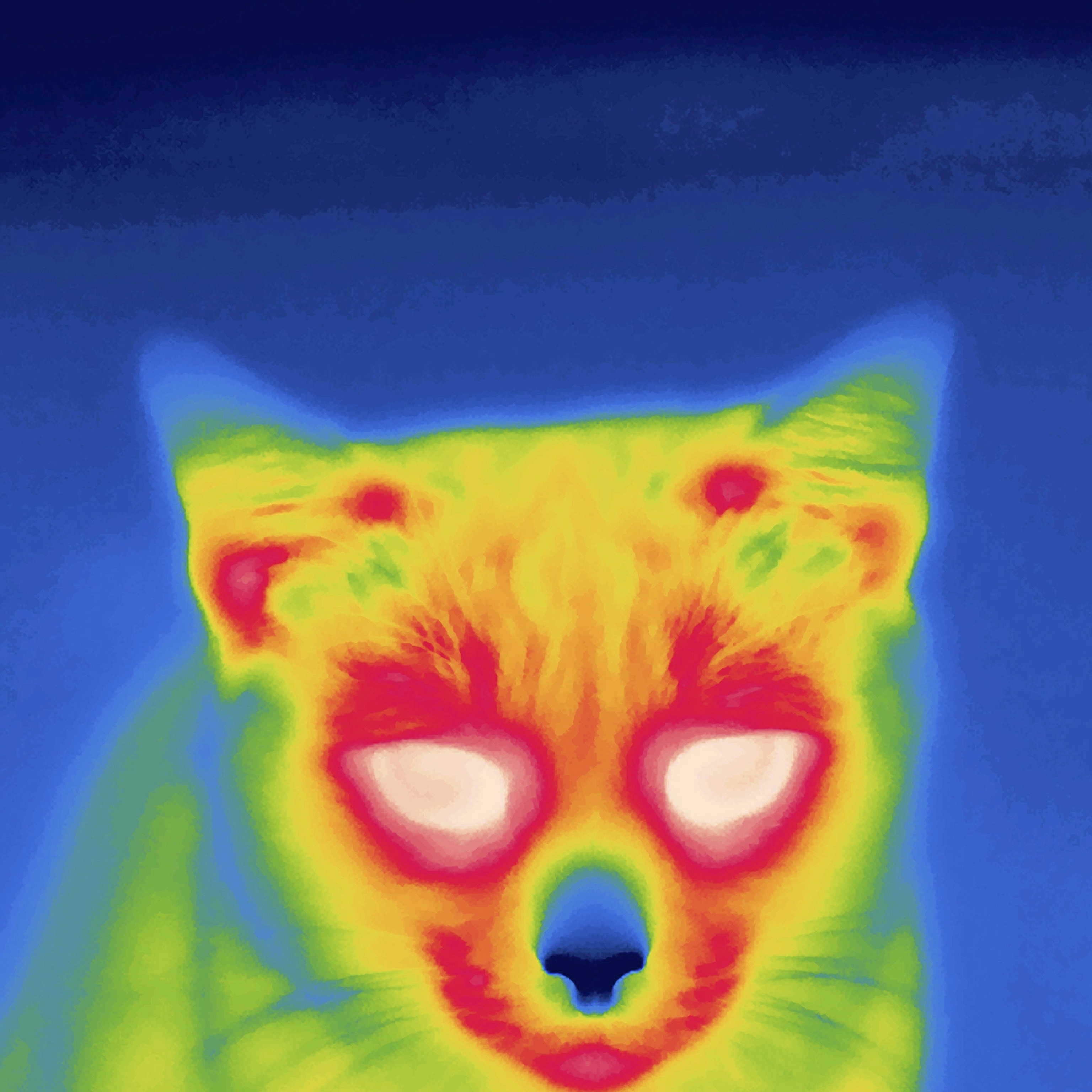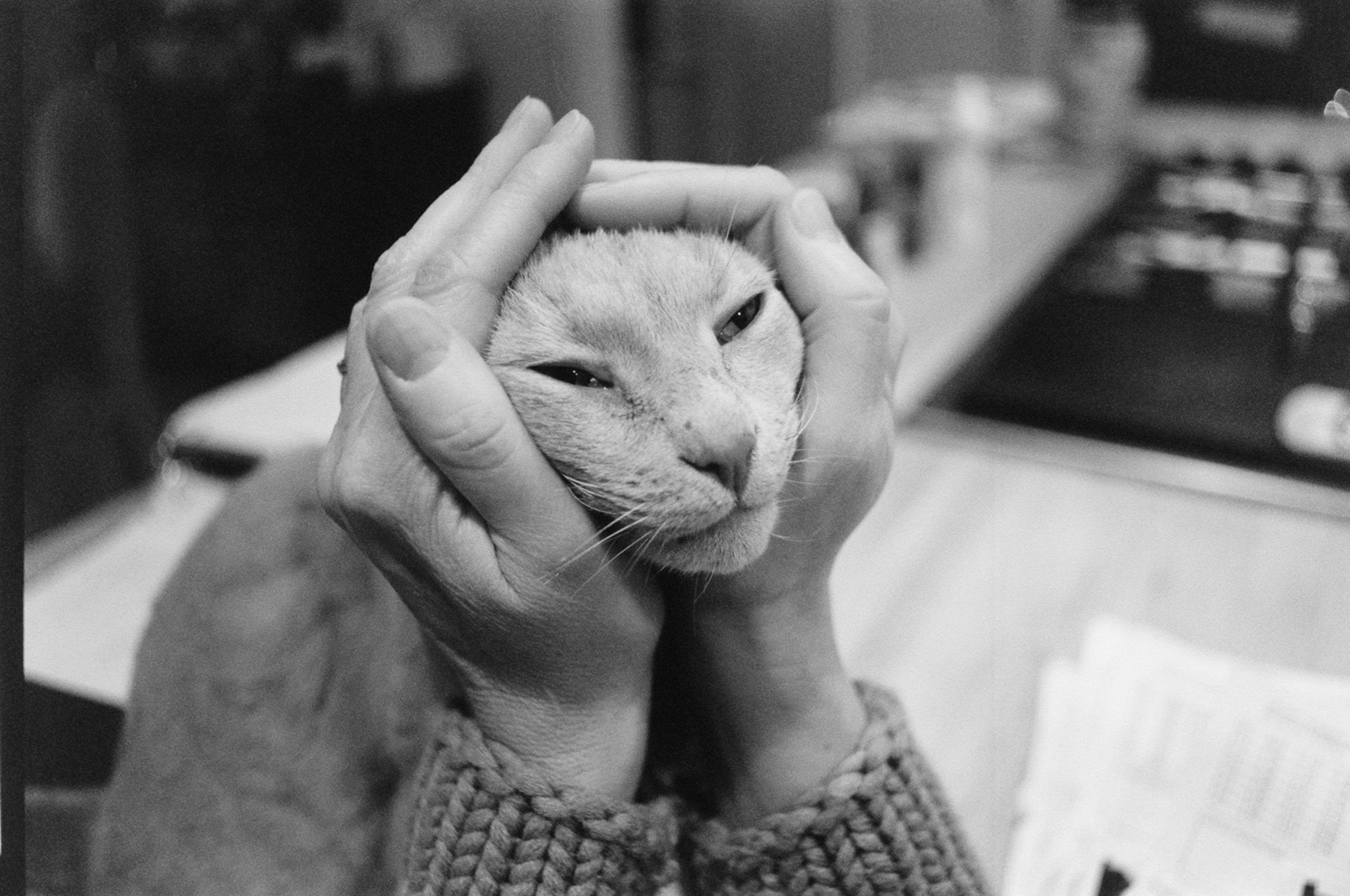Normally, Achilles, a deaf, white cat, lives in the basement of the St. Petersburg’s Hermitage Museum and hunts for mice. But for the 2018 World Cup, the animal has been praised as a feline fortuneteller capable of predicting the winners of soccer matches.
Trainers say the cat apparently foreshadows the outcome of the next match by eating food from one of two bowls, each pegged with flags from competing teams. So far, he has predicted the outcomes of several games, including Russia’s wins against Saudi Arabia and Egypt, Iran’s win against Morocco, and Brazil’s win against Costa Rica. He was wrong in predicting that Switzerland would win against Sweden and that Nigeria would win against Argentina.
Last year, the cat predicted the outcomes of three out of four soccer matches in the FIFA Confederations Cup. But despite popular claims of the clairvoyant cat, experts say Achilles can’t predict the outcome of the World Cup. (Related: everything you think about your cat could be wrong.)
Feline of Fancy
“I am not convinced,” says Kristyn Vitale, a cat researcher at Oregon State University's Human Animal Interaction Lab. “There’s just been no research in that kind of thing.”
Vitale says like humans, cats have a side-bias, so Achilles might be picking a particular bowl because he has a preference for the side it’s on, not because he supports the sports team it represents.
Achilles could also be picking up on the cues of humans around him. In the early 1900s, people believed that a horse named Clever Hans could do math. When a human instructed him in addition or subtraction, Hans came up with the correct answer every time. But when the person hid behind a barrier, Hans began messing up.
As it turns out, the horse was picking up on subtle cues the human was giving off, like a slight lean or an excited look. Similarly, Achilles could be sensing positive reactions from his trainers or sports fans, which could be influencing his decision on which bowl to eat from. (Related: why the classic Clever Hans experiment isn’t what it seemed.)
Cats know how to distinguish quantities, Vitale says. She adds that the trainers might accidentally be putting more food in a certain bowl and Achilles could be eating from the bowl with more food in it.
“It could be that cats are more tapped into the universe, or it could be that they’re really, really sensitive to cues that we’re not picking up,” Vitale says. “Any cognizant animal has a lot of that ability to look at the world around them and make associations.”
Looking to the Future
This isn’t the first time an animal’s sense of the future has come into question. In 2005, Oscar the Hospice Cat began getting a reputation for being able to tell when dementia patients were near the end. Close to their deaths, the usually shy feline would crawl out of hiding to comfort the ailing patients in their final hours.
“One death occurred, then two deaths,” health researcher David Dosa told one hospice blog, “and ultimately he hit about 20 or 30 deaths in a row, at which point everybody started to say, ‘Wow, this is something quite unique.’”
Like Achilles, other animals have been used to forecast sports outcomes. The predictions of Paul, a particularly clever octopus, were surprisingly spot on when he called results of the 2010 World Cup, and Mani the “psychic” parakeet was also in the news during those games. More recently, a pig named Marcus has also apparently predicted the 2018 World Cup, as well as the winner of Wimbledon and the outcome of the Brexit vote.
“It’s an interesting cultural phenomenon that we’re going to animals and asking them to predict things,” Vitale says.
“There may be some people who actually come to like the animals in this way,” says Lori Marino, a neuroscientist and expert in animal behavior and intelligence. “But I think generally, it’s much more negative than positive.”
“There’s really no substantive scientific evidence that there are supernatural psychic abilities,” Marino says. “Let the animals be who they are and let’s stop making them into objects or commodities.”
A previous version of this story incorrectly referred to Kristyn Vitale as Kristyn Vitale Shreve, a PhD candidate at Oregon State University. The story has been updated.





